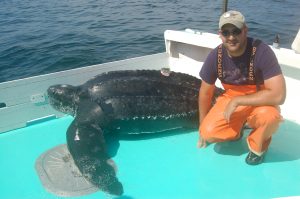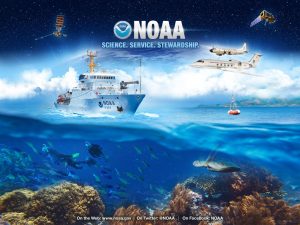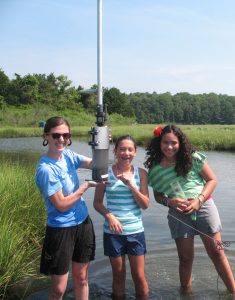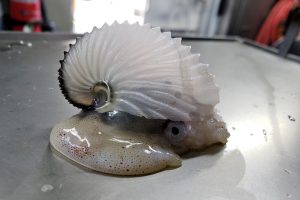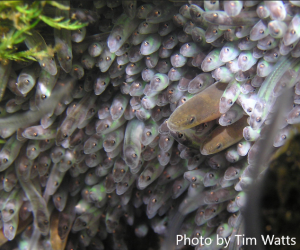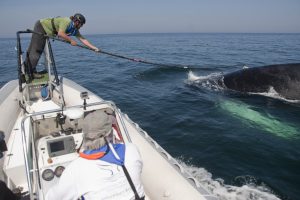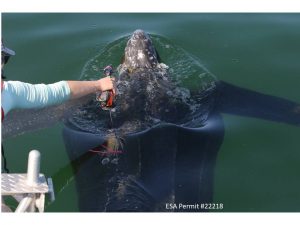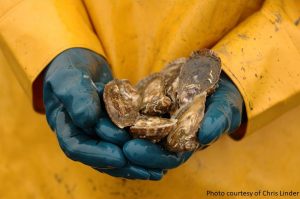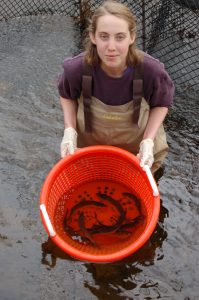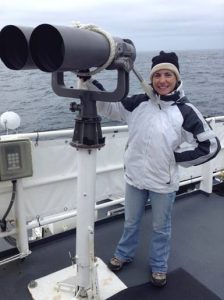Turning Up the Heat: Fish and sea turtles in a warming world
Vincent Saba, NOAA’s Northeast Fisheries Science Center in Woods Hole, MA and NOAA’s Geophysical Fluid Dynamics Laboratory at Princeton University in Princeton, NJ From microscopic plants to large whales, climate change is affecting all ocean life. There are many ways in which climate change can affect ocean ecosystems but during this webinar, we will investigate the effects of…
Read MoreHelp from above – using planes, drones, and satellites to study and protect plants and animals **Smithsonian National Air and Space Museum NOAA Family Day**
NOAA Live! All Stars: Katie Sweeney, NOAA’s Alaska Fisheries Science Center in Seattle, WA Allison Henry, NOAA’s Northeast Fisheries Science Center in Woods Hole, MA Brandon Krumwiede, NOAA’s Office for Coastal Management in Duluth, MN Jennifer Stock, NOAA’s Cordell Bank National Marine Sanctuary in Point Reyes, CA In partnership with the Smithsonian National Air and Space Museum. This…
Read MoreGet Your Feet Muddy at the Waquoit Bay Reserve!
Tonna-Marie Rogers, NOAA’s Waquoit Bay National Estuarine Research Reserve in Falmouth, MA Come along as we explore the Waquoit Bay National Estuarine Research Reserve (WBNERR) on Cape Cod, MA. Walk (virtually) with us into the shallow bay to visit experiment sites, explore the salt marsh, observe osprey and bay creatures, and wade into water sampling…
Read More150 Years and Counting: Studying Fish, Fisheries and More
at the NOAA Fisheries Woods Hole Laboratory and Aquarium in Woods Hole, MA The village of Woods Hole, Massachusetts is home to an amazing collection of marine science institutions. In this webinar, we will introduce you to the NOAA Fisheries Northeast Fisheries Science Center Woods Hole Lab. We will “walk” down main street, explore a…
Read MoreDambusters at Work: Restoring Habitat for Migratory Fish
Eric Hutchins, NOAA Restoration Center in Gloucester, MA Soon after the Pilgrims landed at Plymouth Rock they began to build dams on Town Brook in Plymouth, Massachusetts. Every dam built impacted the migratory pathway of American eel and river herring which need to reach fresh water streams to complete their lifecycle. This talk will describe…
Read MoreWhale and Seek: The Underwater Lives of Whales
Dave Wiley, NOAA Stellwagen Bank National Marine Sanctuary in Scituate, MA How do you know what whales do in the wild? They are too big for an aquarium and disappear from view at every dive. New technologies let scientists attach body movement and acoustic (sound) or video recording tags to whales to watch and listen…
Read MoreSeeing the World Through a Sea Turtle’s Eyes
Samir Patel, NOAA Fisheries Northeast Fisheries Science Center in Woods Hole, MA Sea turtles are considered living dinosaurs in that they have remained relatively unchanged for over 100 million years and yet continue to thrive in our world’s ocean. How are turtles able to do this? We use several camera techniques to film sea turtles…
Read MoreOysters: Nature’s Vacuum Cleaners
Harriet Booth, NOAA’s Woods Hole Sea Grant and Cape Cod Cooperative Extension in Barnstable, MA Have you ever seen or eaten an oyster? How is it different from a clam? Did you know they can filter 1.3 gallons of water per hour and are often put in bays and salt water ponds to clean up…
Read MoreSwimming Upstream with River Herring
with Abigail Archer, NOAA’s Woods Hole Sea Grant and Cape Cod Cooperative Extension in Barnstable, MA Most fish live only in freshwater or only in saltwater, but some special fish can swim back and forth between both! How do they do it? Why do they do it? Tune in to learn the answers and meet…
Read MoreCan You Hear Me Now? Marine Mammals and Sound
Genevieve Davis, NOAA’s Northeast Fisheries Science Center in Woods Hole, MA Have you ever wondered what a humpback whale sounds like? How dolphins communicate? Learn from a member of our bioacoustics team about how sound travels through the ocean, what makes underwater sounds and how we listen in. Discover why marine mammals make sound and…
Read More
